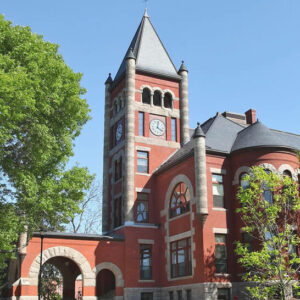For years, the University of New Hampshire had a reputation for fostering free speech and a diversity of ideas on campus. But that reputation has been under assault of late, and now its standing in the latest Foundation for Individual Rights and Expression (FIRE) annual rankings for campus speech has fallen from third in the nation to 59th.
“I did not expect such a drop,” State Rep. Daniel Popovici-Muller (R-Windham) told NHJournal. He was the prime sponsor of a new law protecting free speech on campus passed earlier this year.
As disturbing as UNH’s fall may be, it still hasn’t hit Ivy League levels. The university with the worst free-speech climate in the country is right across the state line in Massachusetts: Harvard.
“Harvard University retained its position as the lowest-ranked institution for free speech for the second consecutive year,” according to the report. “Harvard, Columbia University, New York University all received an ‘Abysmal’ rating for their speech climates. The University of Pennsylvania and Barnard College round out the bottom five.”
Dartmouth College was ranked 224, one of the 30 worst-performing schools in the country.
The top five states: University of Virginia, Michigan Technological University, Florida State University, Eastern Kentucky University, and Georgia Tech. UNH, on the other hand, maintains pro-speech policies, according to the FIRE report, but the latest student survey exposes troubling trends. FIRE’s free speech report found a huge majority of UNH students (77 percent) support shouting down speakers with whom they disagree. Another 42 percent indicated using violence to stop speakers they disagree with is sometimes acceptable.
A UNH representative told NHJournal the university has an excellent free speech climate, as evidenced by the many events held on campus.
“The University of New Hampshire has a long and proud history of supporting the First Amendment. Over the course of the last school year, UNH permitted a variety of Free Speech events across the ideological and political spectrum,” UNH Executive Director of Public Relations Tania deLuzuriaga said.
But the ACLU of New Hampshire criticized how UNH handled anti-Israel protests on campus, using the police to stop pro-Palestine protesters from setting up a large-scale “encampment” on campus. While police ended up arresting 12 people during the May protests, but all but one of those charged had their cases dropped.
Popovici-Muller worked with FIRE and UNH when he created the free speech protection law (HB1305), signed into law by Gov. Chris Sununu this summer. When he first started working on the issue in 2023, Popovici-Muller said, conservative and religious groups were being silenced at the school.
“There has been a pattern of certain groups being treated differently from others when it comes to free speech,” he said.
The Christian group Free Exercise Coalition (FEC) had to lawyer up and file a federal complaint when it was denied official recognition as a student group at the University of New Hampshire Franklin Pierce School of Law by the Student Bar Association (SBA) last year.
State Rep. Ellen Read (D-Newmarket) is one of a handful of Democrats who supported Popovici-Muller’s bill. She was a bit taken aback that more Democrats were not on board. The right to protest was instrumental in the fight for liberal ideals like civil rights, women’s liberation, and against the Vietnam War, she said.
“Free speech is a liberal, leftist concept going all the way back to John Locke,” Read said. “We need to uphold those values. If one side can violate basic rights, that will be used against us as soon as the power shifts.”
New Hampshire Democrats who saw Popovici-Muller’s bill as only benefiting conservatives changed their minds when the pro-Palestinian protests started, Read said.
It shouldn’t matter what the viewpoint of any particular group or individual happens to be, Popovici-Muller said. A public institution like a university must respect everyone’s right to speak and assemble.
“You cannot stack the deck. If you have the power to stack the deck today in your favor, in the future it will be stacked against you,” he said. “The university is facing a very challenging environment where lots of people don’t understand treating all speech equally regardless of its content.”




